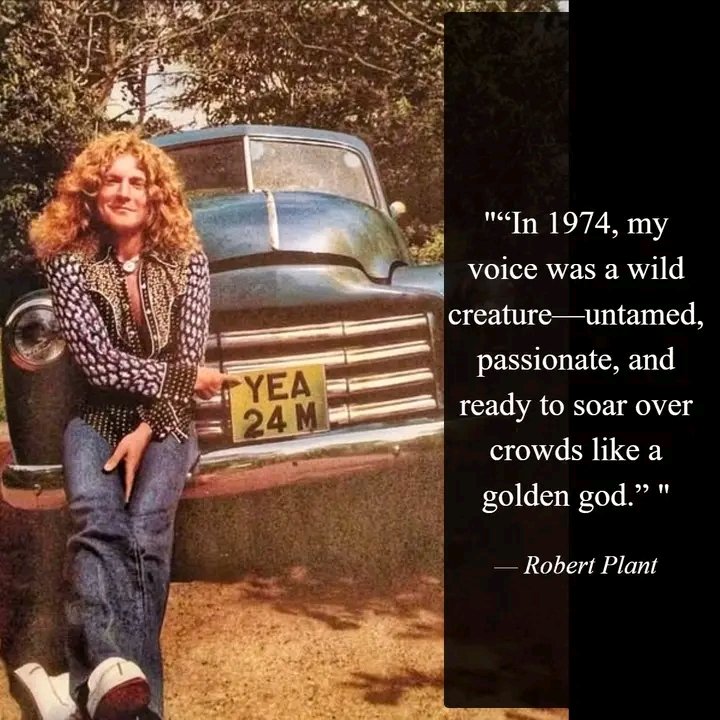From Golden God to Mythmaker: Robert Plant’s Unshakable Reign as Rock’s Supreme Frontman by 1974
By 1974, Robert Plant had transcended the role of mere lead singer to become the very embodiment of the rock frontman. At the heart of Led Zeppelin’s sonic power and mystique stood Plant—his commanding voice, wild aesthetic, and mystical lyricism shaping the band’s identity as much as Jimmy Page’s thunderous riffs or John Bonham’s primal drumming. With his unmistakable golden curls and unbuttoned shirts flapping in the spotlight, Plant wasn’t just performing—he was conjuring something elemental, something larger than life.
That year marked a creative apex for Led Zeppelin. Having released Houses of the Holy in 1973 and already deep into the conceptual and recording stages of what would become the monumental Physical Graffiti, Zeppelin was pushing boundaries with each composition. Plant’s vocals adapted to this evolution seamlessly. On tracks like “Kashmir,” his voice floated and surged like a desert wind, delivering cryptic lyrics that drew from ancient civilizations and eastern mysticism. On “In My Time of Dying,” he summoned biblical fervor and blues-soaked passion in equal measure, oscillating between whispered pleas and volcanic wails.
Plant’s stage presence was just as essential to his legend as his vocal prowess. Clad in skintight jeans, flowing shirts, and an unmistakable swagger, he exuded confidence and sexual magnetism without seeming contrived. Critics and fans alike began referring to him as the “Golden God”—a nickname that, while tongue-in-cheek, felt fitting for someone who appeared to command both the stage and the storm. He had mastered the art of making a stadium feel intimate, drawing crowds in with every gesture, every note.
Offstage, Plant was increasingly consumed with deeper themes. His lyrics, especially post-Led Zeppelin IV, reflected a fascination with mythology, spirituality, and ancient history. Unlike many rock stars of the era who indulged in escapist fantasy purely for aesthetics, Plant wove his knowledge and interest into the very fabric of Zeppelin’s sound. He was a bard in a hard rock world, infusing even the band’s heaviest tracks with poetic and esoteric depth.
By 1974, Robert Plant had become more than just the voice of a generation—he was its spiritual channel. He captured both the ecstasy and the unrest of the era, guiding listeners through realms of fantasy, introspection, and rebellion. His influence on rock performance, vocal technique, and lyrical ambition is impossible to overstate. Even today, countless frontmen still chase the fire that Plant lit more than five decades ago—often without realizing they’re following a trail he first blazed through the storm.
